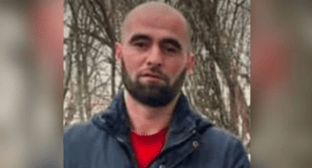13 July 2020, 15:09
Week in the Caucasus: review of main events of July 6-12, 2020
Statistics of the coronavirus infection spread in the Caucasus and impact of the pandemic on the everyday life of people living in the countries of Southern Caucasus and southern regions of Russia; armed clash on the border between Azerbaijan and Armenia; public outcry around the murder in Vienna of a blogger criticizing Ramzan Kadyrov, – see the review of these and other events in the Caucasus during the week of July 6-12, 2020, prepared by the "Caucasian Knot".
Statistics of coronavirus infection spread in Caucasus
Over the past week, Armenia still leads in Southern Caucasus in both the number of coronavirus-infected patients and the COVID-19 death toll. By the evening on July 12, the number of coronavirus-infected people in Armenia reached 31,969 (3363 new cases over the week), in Azerbaijan – 24,041 (3717 new cases over the week), in Georgia – 986 (35 new cases over the week), in Nagorno-Karabakh – 147 (12 new cases over the week), in South Ossetia – 87 (2 new cases over the week), and in Abkhazia – 38 (no new cases over the week). By 8:00 p.m. Moscow time on July 12, Armenia registered 565 deaths from COVID-19, Azerbaijan – 306, Georgia – 15, and Abkhazia – 1.
The number of coronavirus-infected patients is also increasing in regions of Southern Russia. While by the evening on July 5, it was reported about 62,612 coronavirus-infected patients in all the regions of Southern Russia, then by the evening on July 12, their total number reached 66,788 (4176 new cases over the week). Over the week, the Rostov Region still leads in the number of coronavirus-infected patients, where 10,726 cases were registered. Dagestan still stays at the second place with 8468 coronavirus-infected patients. The Volgograd Region remains on the third place with 7428 coronavirus-infected patients. In the Krasnodar Territory, 6721 patients were diagnosed with the coronavirus infection, in the Stavropol Territory – 6164, in Kabardino-Balkaria – 5562, in North Ossetia – 4240, in Karachay-Cherkessia – 4044, in the Astrakhan Region – 3910, in Ingushetia – 3302, in Adygea – 2242, in Kalmykia – 2149, and in Chechnya – 1832.
Over the week, the coronavirus death toll also increased: from 1061 to 1149 (88 new cases of death over the week). During the week, according to the sad death toll statistics, Dagestan still leads in the region: the republic has already registered 413 COVID-19 deaths since the beginning of the pandemic. Dagestan is followed by the Rostov Region where 163 COVID-19 deaths have been already registered, and the Stavropol Territory with 119 COVID-19 deaths stays at the third place in the sad death toll statistics. By 8:00 p.m. Moscow time on July 12, in the Krasnodar Territory, 87 patients with the diagnosis of the coronavirus infection died, in Ingushetia – 71, in North Ossetia – 67, in Kabardino-Balkaria – 61, in the Volgograd Region – 48, in the Astrakhan Region – 35, in Kalmykia – 27, in Chechnya – 27, in Karachay-Cherkessia– 17, and in Adygea – 14.
Impact of pandemic on everyday life of people living in countries of Southern Caucasus and southern regions of Russia
The restrictive measures imposed in connection with the pandemic and still in force in the countries of Southern Caucasus and the southern regions of Russia often cause discontent among local residents.
So, on July 6, in Makhachkala, about 60 owners of catering outlets held a protest action with the demand to increase the number of restaurants allowed to resume operation after the quarantine regime. The protestors expressed their indignation at the fact that they were not allowed to open their catering outlets. In Kalmykia, owners of cafes and restaurants are also planning to hold protests with the demand to mitigate restrictive measures in the field of public catering and to provide support to entrepreneurs who lost their income. On July 7, in Elista, entrepreneurs engaged in the restaurant business appealed to the leader of Kalmykia with a request for permission to open at least summer cafes in open areas. Restaurant owners and tenants believe that the quarantine regime is able to destroy their businesses.
On July 9, a protest action with the demand to open restaurants was held in Yerevan. The protest involved restaurant owners and DJs, singers, and event hosts. According to the protestors, more than 20,000 people lost their jobs because of the closure of restaurants, the industry has found itself on the verge of collapse, and the assistance provided by the authorities is insufficient.
In Adjara, participants of a series of protests claimed that one-time compensation for the loss of seasonal work in Turkey was not enough for people. The protestors demanded from the authorities to open the "Sarpi" border checkpoint or pay compensation every month until its opening.
Armed clash on border between Azerbaijan and Armenia
On July 12, the Ministry of Defence (MoD) of Azerbaijan reported about a shelling attack from the Armenian side on the section of the Azerbaijani-Armenian state border in the Tovuz District and an armed clash which followed the shelling attack. According to the Azerbaijani side, "the enemy's attack was repelled, and the enemy was forced to retreat, incurring losses," while two Azerbaijani soldiers were killed, and five others were wounded. Later, one of the wounded soldiers died in a hospital. The Ministry of Defence of Armenia reported no casualties. Meanwhile, according to the Armenian side, the armed clash took place after Azerbaijani soldiers used an UAZ vehicle, "attempted to violate the state border" of Armenia in the Tavush District, and then "opened artillery fire with the intention of capturing an Armenian stronghold." It should be noted that in the third decade of June, the number of shelling attacks from the side of Armenia and Nagorno-Karabakh, registered in the daily reports of the Azerbaijani MoD, increased from two or three dozen up to 50 or more shelling attacks. On July 9, Azerbaijani military analysts interviewed by the "Caucasian Knot" noted the remaining threat of aggravation of the Nagorno-Karabakh conflict. According to the Azerbaijani military analysts, the key factor of the possible escalation is not the intensity of the shelling attacks, but the lack of progress towards a political settlement of the conflict.
Public outcry around murder in Vienna of blogger criticizing Ramzan Kadyrov
On July 6, the police arrested two natives of Chechnya, who had been living in Europe with refugee status for more than 15 years, on suspicion of killing Mamikhan Umarov in Vienna. The murder of Mamikhan Umarov was politically motivated, members of the Chechen Diaspora in Austria believe. On July 8, in her interview to the ORF (Austrian Public Television), journalist Susanne Scholl, the author of the book "Daughters of the War: Surviving in Chechnya", said that the murder of Mamikhan Umarov was of political nature. The journalist also claimed "long arms" of Ramzan Kadyrov. However, on July 9, the Austrian police announced that they had not yet decided on the version of the main motive for the crime. According to the Austrian police, the killing in Vienna of Mamikhan Umarov, a refugee from Chechnya, might have been a contract murder or motivated by a domestic conflict. Let us remind you that blogger Mamikhan Umarov, well-known as Anzor from Vienna, who was killed on July 4, criticized Ramzan Kadyrov in his videos posted on YouTube and repeatedly insulted the leader of Chechnya and his parents. Shortly before his murder, the blogger claimed receiving threats and blamed the Austrian authorities for inaction. On July 9, Ramzan Kadyrov himself claimed that the killings, including the murder of blogger Mamikhan Umarov, were organized by Western secret services in order to blame the authorities of Chechnya for the crimes. On the same day, the Ministry of Foreign Affairs (MFA) of the Russian Federation claimed that the unbiased investigation into the murder was being impeded by insinuations that the authorities of Chechnya had been involved in the murder of Mamikhan Umarov in Vienna.
This article was originally published on the Russian page of 24/7 Internet agency ‘Caucasian Knot’ on July 13, 2020 at 09:15 am MSK. To access the full text of the article, click here.




